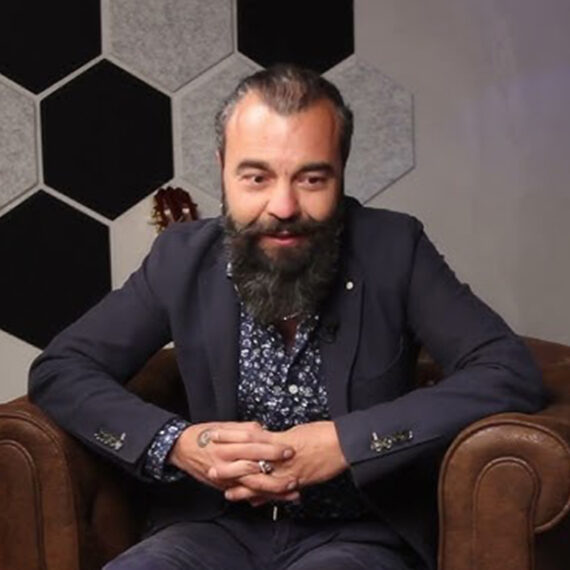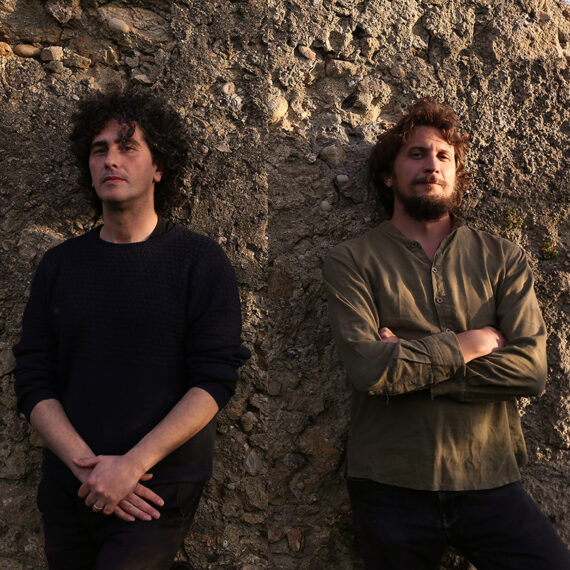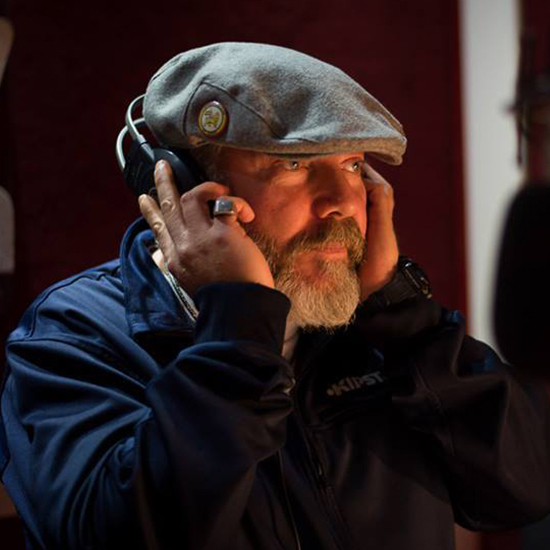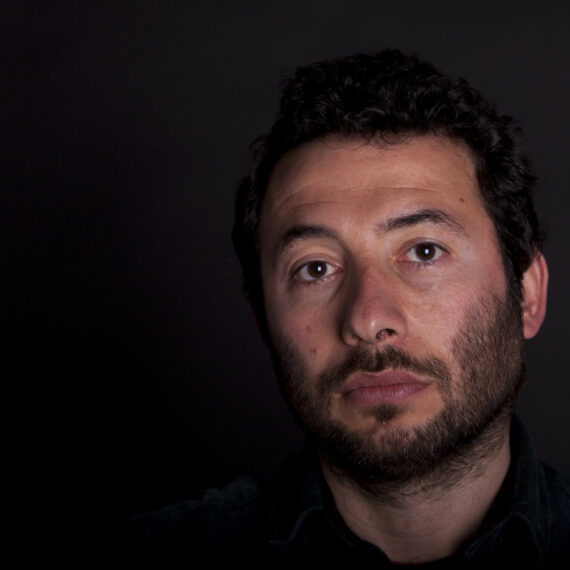Claver Gold & Murubutu

Born in 1986, Claver Gold (Daycol Orsini on official records) hails from a working-class neighborhood in Ascoli Piceno. He quickly discovered the art of writing and the nuances of marker paints, eventually channeling his soul and voice into rap, from freestyle battles to his initial albums. From 2007 to 2013, he lived in Bologna, juggling between the Academy of Fine Arts and the stages of Social Centers. A two-time winner of Tecniche Perfette Marche and a national finalist, he secured victory in the first singer-songwriter talent show “Genova per voi” with the single “Cyborg” from “Mr. Nessuno,” the album that introduced him to the Italian audience. His distinctive writing style surfaced early in works like “Tarassaco Piscialetto” and “Patate e Cipolle,” characterized by lyrical and poetic elements that establish a strong empathic connection with listeners through rich imagery and detailed, passionate storytelling. It was with “Mr. Nessuno” and “Melograno,” both released by Glory Hole Records, that the Marche rapper took a definitive step forward. In 2017, his seventh studio album “Requiem” was released under Glory Hole Records, featuring collaborations with major names in Italian rap (Rancore, Ghemon, Egreen, Murubutu, Fabri Fibra). The subsequent successful Italian tour recorded several sold-out shows. Claver Gold, with his introspective and reference-rich writing, has established himself as a prominent figure in national storytelling. In 2019, he won the “Tonino Carino” award for Young Excellence in songwriting and released the EP ‘Lupo di Hokkaido,’ touring throughout Italy with several sold-out performances. In 2020, he released the album “INFERNVUM,” co-written with Murubutu. The first single, ‘Paolo e Francesca,’ featuring Giuliano Palma, was extracted from the album. A few months later, “La maggior parte” was released, bringing the artist’s past hits to digital stores.
Murubutu, Alessio Mariani in real life, got into hip hop in the early ’90s. A philosophy and history teacher at the “Matilde di Canossa” high school in Reggio Emilia, he began exploring the interaction between academic content and rap music in 2000. The goal was to make rap an expressive medium for cultural content without sacrificing stylistic attention. The result was a new music subgenre: didactic rap, realized in 2006 with the release of the album “Dove vola l’avvoltoio” with the collective La Kattiveria. Building on the fusion of rap and narrative, Murubutu embarked on a solo project in 2009, entirely dedicated to storytelling, where classic hip hop sounds served as a backdrop to lyrics with a strong singer-songwriter curve and poetic accents. In 2011, Murubutu won the second prize at the National Contest for storytellers “G.Daffini” with the track “Anna e Marzio.” His musical career, up to now, comprises four albums distributed by the Bologna-based Irma/Mandibola records: “Il giovane Mariani e altri racconti” (2009), “La bellissima Giulietta e il suo povero padre grafomane” (2011), “Gli ammutinati del Bouncin’ (Ovvero mirabolanti avventure di uomini e mari)” (2014), “L’uomo che viaggiava nel vento e altri racconti di brezze e correnti” (2016). The album features collaborations with figures in Italian hip hop such as Dargen D’Amico, Rancore, Ghemon, as well as members of La Kattiveria. In 2015, he collaborated with the experimental hip hop duo Uochi Toki on the track “Rest in Prose, Rest in Poetry” from the album “Il limite valicabile.” In 2019, the album “Tenebra è la notte ed altri racconti di buio e crepuscoli” was released, centered around the theme of night and darkness, featuring artists like Caparezza, Mezzosangue, and Willie Peyote. The following year saw the release of “Infernvm,” created with Claver Gold, loosely inspired by Dante Alighieri’s Divine Comedy, featuring additional collaborations.



